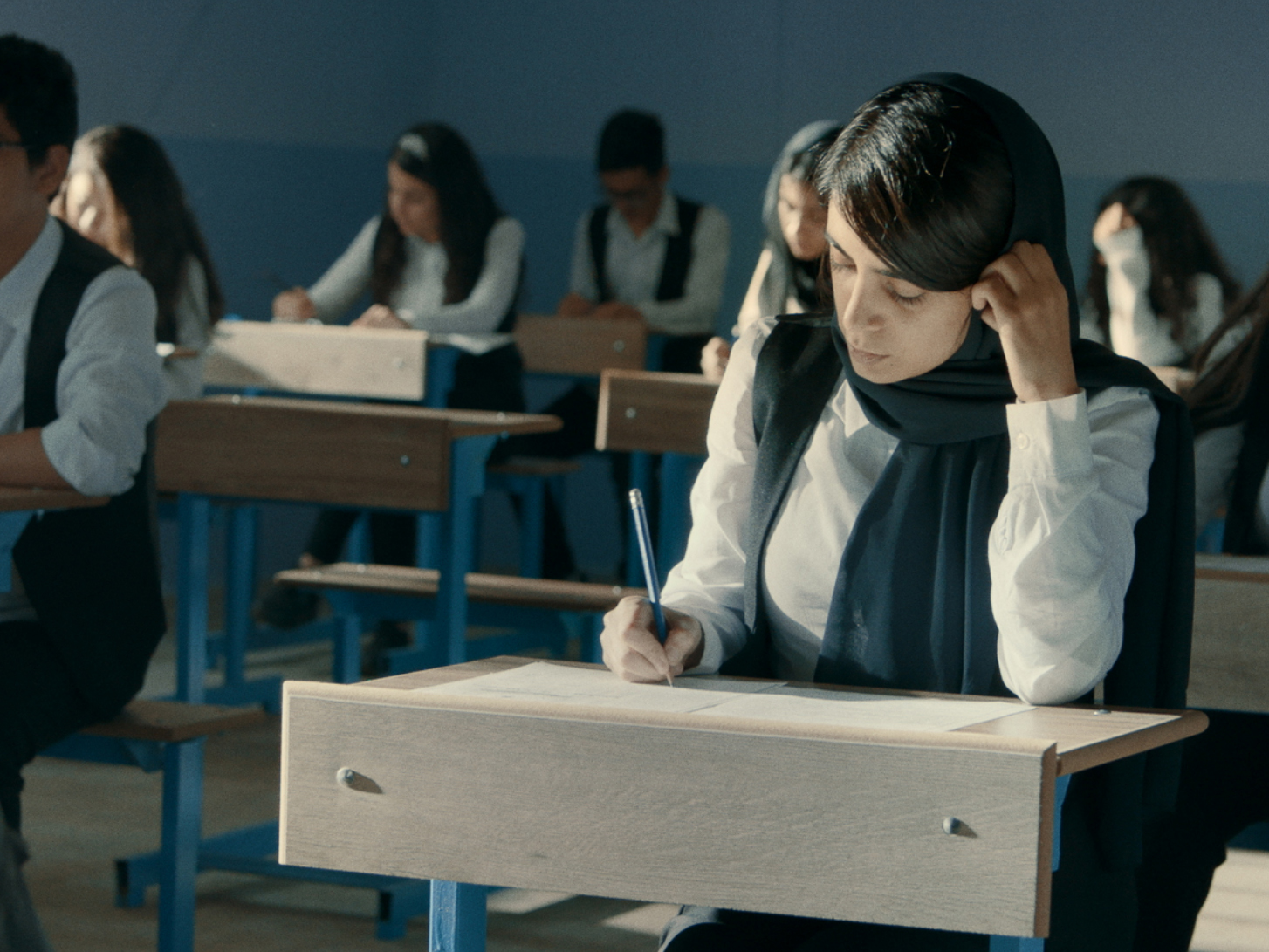
- Golden Globe Awards
The Exam (Iraq)
Heartbroken and suffering from depression after the disappearance of her fiancé, Rojin fears her father’s rule that if she fails the exam, he will force her into marriage. If she succeeds, however, she might lead a more emancipated life.
Directed by Shawkat Amin Korki who co-wrote the screenplay with Mohamedreza Gohari, the social drama and crime thriller also stars Hussein Hassan Ali, Shwan Attoof, and Hushyar Nerwayi.
In an email interview, the Iraqi Kurdistan Korki talked about his movie which won the 2021 Karlovy Vary International Film Festival FIPRESCI prize for best film: “The biggest challenge I faced during the process of making this film was the controversial topic of corruption within the educational system and how people would react to it.
“Keep in mind that through corrupt educational systems, some students go on to become doctors, engineers and educators without having the proper knowledge and society, as a whole, pays for these students’ corrupt methods of gaining a diploma. I did not know how society and the government would react to this film.”
On what sparked his idea to make the film which also bagged the 2022 Santa Barbara International Film Festival Jeffrey C. Barbakow international cinema prize, Korki replied, “The idea of the film came from a conversation I had with my daughter regarding her studies and when she told me that there are students who do not study and get almost perfect grades through cheating.
“After doing months of research and realizing that corruption within the educational system is very much present in our society, I started to build the story through the eyes of two sisters. I chose to have my two main characters as females because it gave me a path to talk about the social injustice that females face in the Middle East which includes arranged marriages, lack of education, and lack of self-expression, among other injustices.”
Korki added, “It is my wish that domestically and globally, audiences will be reminded of the types of atrocities that are the outcomes of a corrupt educational system. I also want audiences to look at this film as an awareness of the injustices that women face in the Middle East.”

